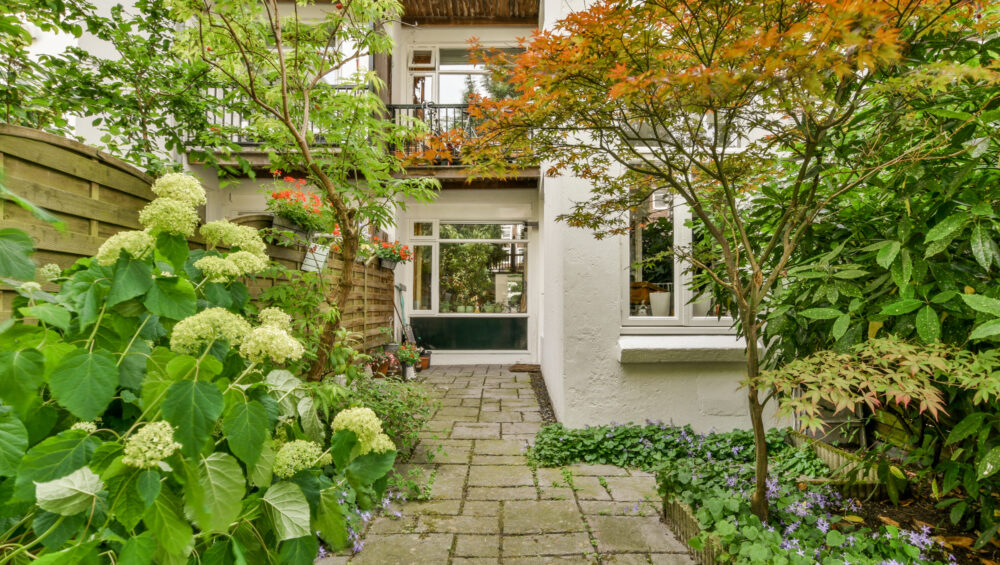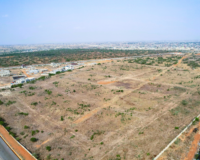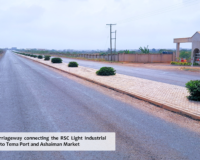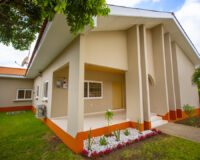How do you go about buying a house in Ghana? What are the steps involved and what are the challenges you may face? We will guide you through the process from research to securing your property. You will also be given some tips and resources to help you make the best decision.
This guide has been broadly outlined into, RESEARCH > BUY > SECURE.
1. RESEARCH
Firstly, you need to have a clear idea of what you are looking for. E.g. Where do you want to live or invest? How much you can afford? Here are some factors to consider:
Location
Location is one of the most important factors that affect the price and value of a house. You need to research the different areas in Ghana and find out which ones suit your budget and investment objective.
Do you want to live in a prime or developing location? Are you investing to generate regular income from renting out your property? Is it to grow your net worth by investing in a property that will appreciate over time? Do you want to save on rent and enjoy value appreciation as well? Finding sincere responses to these questions will help to narrow down your options, on the locations that match your goals. (Tip: You can read more about the top locations to buy a house/property in Accra, Ghana)
View Properties In Person
Developers are trying to bring the viewing experience closer to you with technology. But it is always advisable to go for an in-person viewing. You get to see other things that could affect the value of the house. It will give you a better appreciation of the infrastructure of the community where the property is located. You also get to inspect the quality and condition of the house and ask the relevant questions. You can check out the blog post on the top 10 real estate developers in Ghana; as a guide; if you wish to buy from a developer.
Conduct Due Diligence (The Search Report)
It is very essential to conduct due diligence on the property and the seller before you make an offer or sign any contract. You need to verify the rightful owners of the property or the land on which the property sits and check for any encumbrances or disputes.
To avoid the risk of fraudulent sales, it is advisable to conduct a valid search to ascertain the rightful custodian(s) of the property. In Ghana, the institution mandated to assist with this is the Lands Commission. You can visit their offices or use their online portal to request a land title search. You will need to provide the site plan or indenture of the property and pay a fee for the service.
Seek legal advice
Buying a house involves a lot of legal documents and procedures, which can be complicated and confusing for the average buyer. It is therefore recommended that you seek legal advice from a qualified lawyer or solicitor, who can guide you through the process and protect your interests. Some people think that legal advice is expensive, but it should rather be an important action, during due diligence, to avoid wasting money on a fraudulent sale. A fraudulent transaction is more expensive than the cost of legal advice. The legal expert will also handle the property transfer process at the buying stage. They will ensure that all legal requirements are met, and the property’s title is clear.

2. BUY
Once you have done your research and due diligence, you are ready to buy the house of your choice. At this stage, you have the option of working with an agent or dealing directly with the seller or developer. Here are some tips to help you with the buying process:
Working With An Agent
An agent is a person who acts as an intermediary between the buyer and the seller, and helps with the negotiation, documentation, and closing of the deal. Working with an agent can have some advantages, such as having access to a wider network of properties and sellers, getting professional advice and guidance, and saving time and hassle.
However, working with an agent also has some costs, such as paying a commission, which is usually a percentage of the final sale price of the house. The commission rate may vary depending on the agent, the property, and the market, but it is usually between 5% and 10%. You should always agree on the commission rate and terms before you engage an agent, and make sure they are licensed and reputable. You can find agents through referrals, online platforms, or associations like the Ghana Association of Real Estate Brokers.
Dealing Directly with The Seller or Developer
If you prefer to deal directly with the seller or developer, you can avoid paying a commission to an agent and have more control over the negotiation and transaction. However, you will also have to do more work and research on your own and be more careful and vigilant about the details and documents. If you wish to buy from a developer, you will not require the services of an agent, as developers usually have a complete set-up to support you, from legal services/advisory, through technical advisory to after-sales support. You can find developers through their websites, social media, or events like the Ghana Property and Lifestyle Expo.
Discuss The Price Offer and Related Costs
Whether you work with an agent or not, you will need to discuss the price offer and related costs with the seller or developer. The price offer is the amount of money that the seller or developer is willing to accept for the property, and it may or may not be negotiable. You should always do your market research and analysis, and compare the price offer with similar properties in the same area, to determine if it is fair and reasonable.
You should also consider the related costs that come with buying a house, such as stamp duty, legal fees, registration fees, valuation fees, agency fees, etc. These costs can add up to a significant amount, and you should factor them into your budget and negotiation. If you are buying from a developer, you will usually receive a formal offer, and then you can engage in discussions on payment plans, discounts, options, etc., before you accept the offer.
Choose a Payment Plan
There are several payment plans you can consider when buying a house in Ghana, depending on your financial situation and preference. Some of the common payment plans are:
- Bank financing: This is when you borrow money from a bank or a mortgage company to pay for the house, and then repay the loan with interest over some time. This option can help you buy a house that you may not be able to afford otherwise, and also enjoy some tax benefits. However, this option also comes with some challenges, such as high-interest rates, strict eligibility criteria, a long approval process, and collateral requirements. You will also need to have a good credit history and score and provide proof of income and employment. Some of the banks and mortgage companies that offer financing for buying a house in Ghana are First National Bank (formerly GHL Bank), Republic Bank, Stanbic Bank, Absa Bank, and CAL Bank.
- Self-financing: This is when you pay for the house with your savings, investments, or income, without borrowing from any external source. This option can help you avoid paying high interest, fees, and charges, and also give you more flexibility and control over the transaction. However, this option also requires you to have a large amount of money available upfront and also to plan and save for a long time. You will also need to have good financial discipline and management and avoid any unnecessary expenses or debts.
- Installment payment: This is when you pay for the house in parts or installments, over some time, until you complete the full payment. This option can help you spread the cost of the house over a longer duration, and also reduce the pressure and risk of paying a lump sum. You will need to have a steady and reliable source of income and a binding contract with the seller or developer. (Tip: You can read about the installment payment options being offered by Regimanuel Gray Real Estate Developers)
3. SECURE
The final step in buying a house in Ghana is to secure your property. This means completing the requisite documentation, registering your ownership, and maintaining your property. Here are some tips to help you with this step:
- Completing House Documentation
Once you’ve agreed on terms and finalized the purchase, it’s time to complete the necessary house documentation. This typically involves obtaining a sale and purchase agreement and an indenture detailing the transfer of property ownership and securing a title deed through the Lands Commission for added security.
- Estate Management
If you’re purchasing a property within an estate developed by a company, consider becoming a part of the estate management structure. This involvement ensures ongoing support and maintenance services from the developer, enhancing your overall property ownership experience.
Would like to have a swimming pool in your house?
Our subsidiary, Desjoyaux Pools Ghana, has a special offer for all new homeowners at Regimanuel Satellite City (a limited-time offer). You can kindly contact +233 050 141 9091 for further information.








8 Comments
[…] Tip: You should also read the Comprehensive Guide on How to Buy a House in Ghana. […]
[…] Emmanuel Botchwey, the Executive Chairman of Regimanuel Gray Ltd, has urged stakeholders in the country’s housing industry to swiftly embrace vertical […]
Would like a developer.
Hi Sheila,
Kindly contact +233501419091 (Call/WhatsApp) for assisstance.
Thank you.
I will like to buy one of your houses
Hi Margaret,
Kindly contact +233501419091 (Call/WhatsApp) for assisstance.
Thank you.
Hello ,
So very grateful for your knowledge and information regarding awareness when purchasing a home in Ghana.
I am currently in talks with a developer regarding the a acquisition of a new build in a new development. They have given me a price of 93,000 usd, 7yr payment option with 15% interest. When I made my calculations it doesn’t coincidence with the amount they have put on paper. The developer told me to use the mortgage calculator but I am not borrowing money from a bank or other institution.
Their process of calculating interest seems illegal and I just wanted to ask if there is a regulatory body that monitors this type of fraud and could I report them.
Hope to hear from you soon.
Thanks!
Hi Nrgy,
Just a suggestion. The Ghana Real Estate Edevelopers Association (GREDA) is a copoprate body for Developers in Ghana.
Although they are not a Regulator, this can be reported to them to look into it and act when required. GREDA also acts
as a watchdog for the industry and they are recognised by The Government of Ghana in that respect.